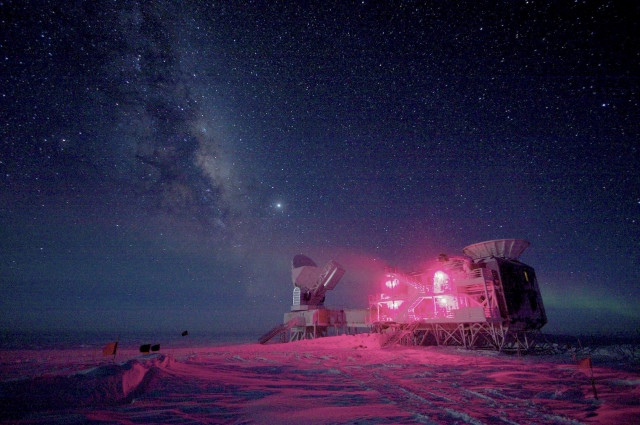Higgs Boson Particle Scientist: Universe Should Have Collapsed After Big Bang

If the Big Bang theory is correct, the universe should not exist, an expert has said.
Robert Hogan, a doctoral candidate in physics at King's College in London, said that models of conditions after the Big Bang suggest it should have collapsed less than a second after forming.
Speaking to LiveScience, Hogan said: "During the early universe, we expected cosmic inflation — this is a rapid expansion of the universe right after the Big Bang. This expansion causes lots of stuff to shake around, and if we shake it too much, we could go into this new energy space, which could cause the universe to collapse."
Currently, physicists use a model that accounts for the Higgs boson particle – the 'God' particle that explains how other particles get their mass. Hogan said that under this model, the universe should have collapsed.
"We have to extend our theories to explain why this didn't happen."
Hogan and colleague Malcolm Fairbairn looked at the properties of the Higgs boson mass and cosmic inflation (after the Big Bang) to try to recreate the conditions of cosmic inflation when the universe was born.
They found that the universe should have experienced an intense shaking in the energy feed, which would have disrupted the Higgs field and led to the system being turned into a lower energy state, making collapse inevitable.
"The generic expectation is that there must be some new physics that we haven't put in our theories yet, because we haven't been able to discover them," Hogan said.
However, current theories about cosmic inflation – including their apparent discovery by the Bicep2 telescope at the South Pole – are being questioned by scientists. Some experts say the echoes detected by the telescope are not from the start of the universe, but were just galactic dust.
If theories about cosmic inflation change, so too would Hogan's theory of the universe's collapse.
© Copyright IBTimes 2025. All rights reserved.






















